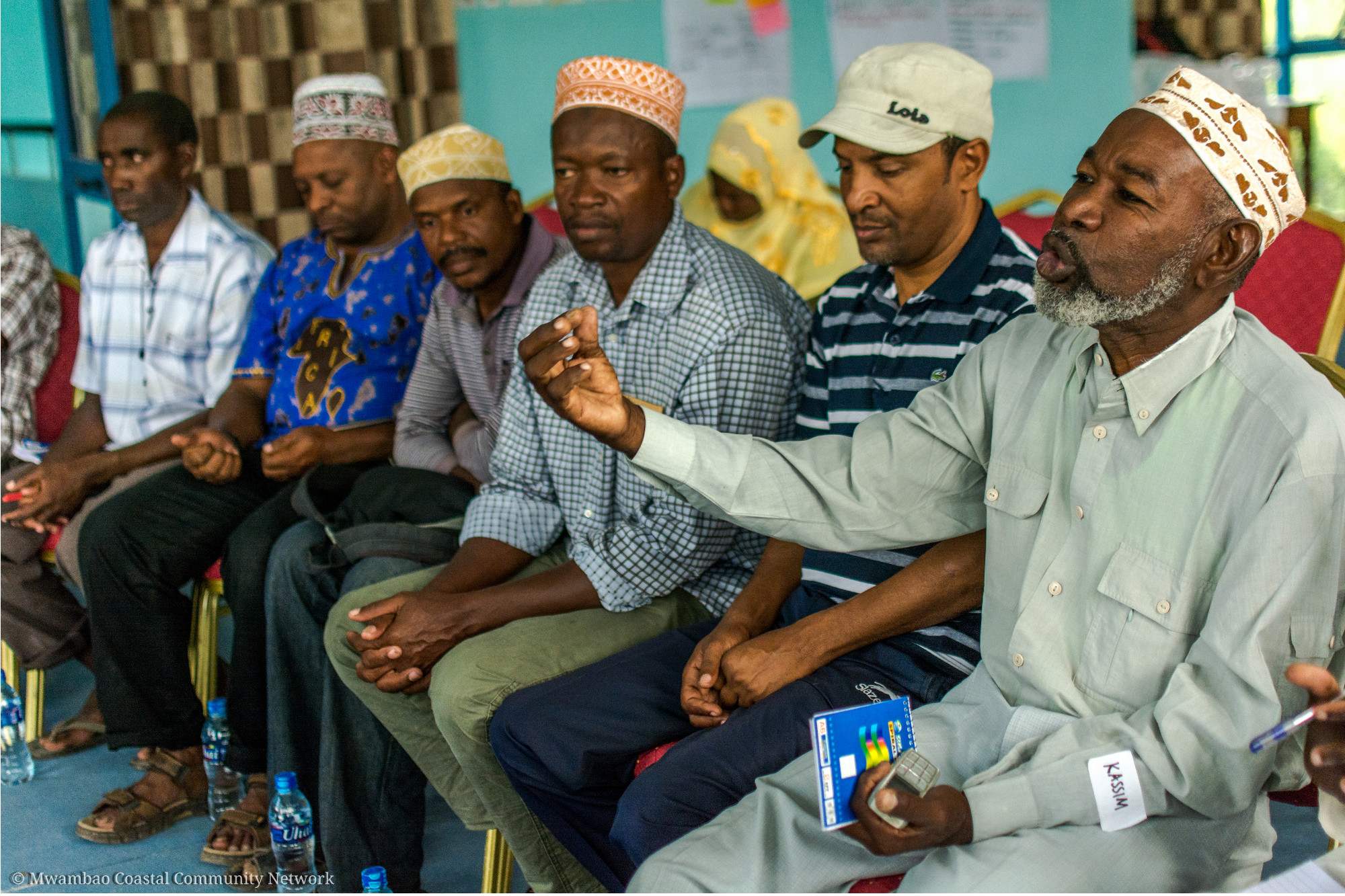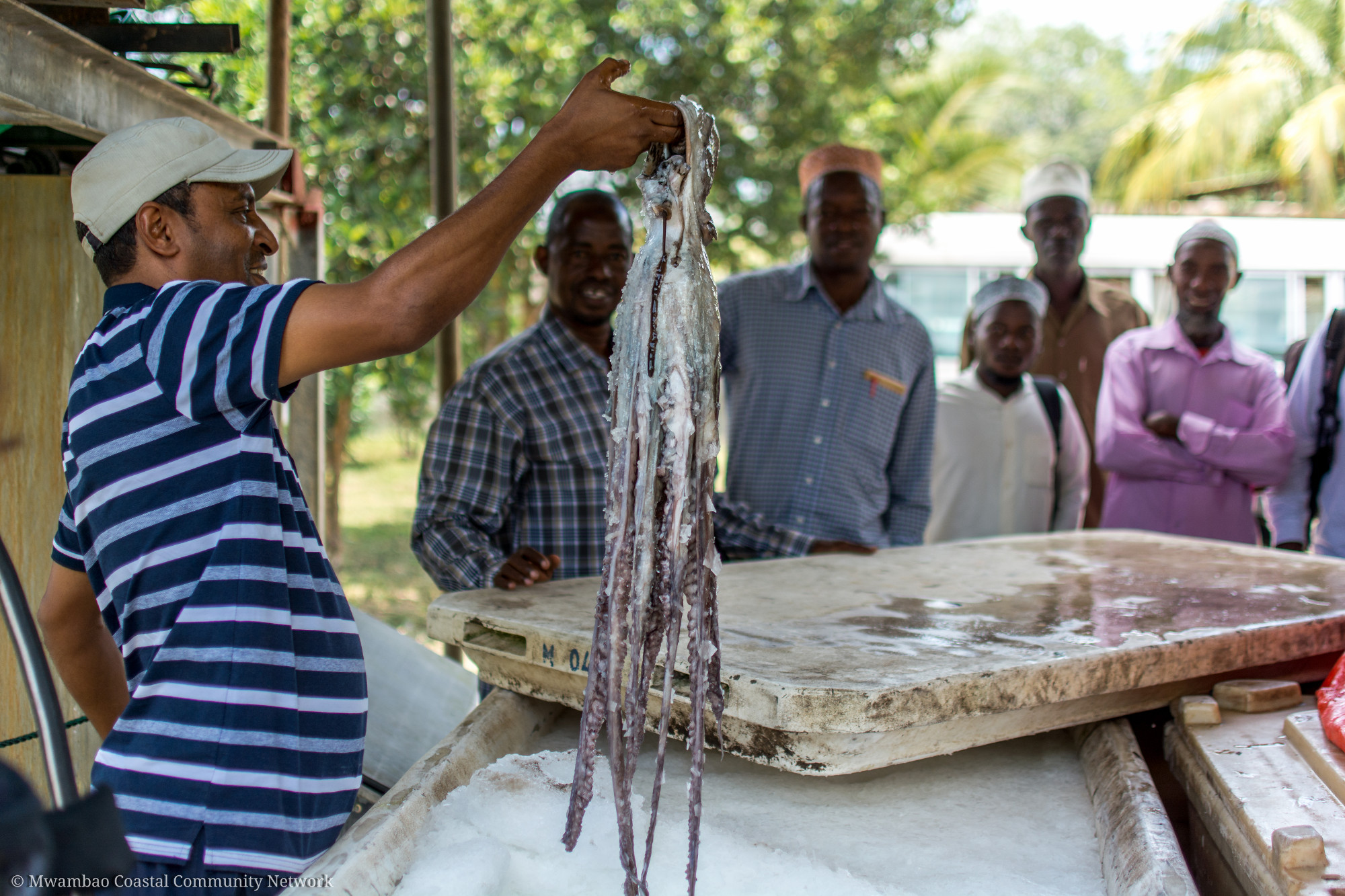



This entails the collection of information through focus groups and interviews with fishers and buyers to understand the octopus fishery, number of buyers, prices, processing, export destination and decision-making criteria, in particular whether a fisher is ‘locked’ into a relationship with a buyer. The interviews use the value chain questions included in the STEP survey designed by E. O’Neill of Stockholm Resilience Center. Interviews and focus groups were held with octopus, sea cucumber and cowrie collectors and buyers and seaweed growers. Information has been gathered as to export markets and collector/buyer relationships. The supply chain for octopus has been elaborated, key players identified and links established. Buying price fluctuation has been noted and reasons explored. This information is invaluable when designing an intervention to add value to the fishery or when looking at the viability of new market buyers or destinations. This work in Pemba has been followed up with 'participatory market system development' workshops (supported by FFI) with all stakeholders. This resulted in commitment from all players to play their part in supporting the intervention, including buyers agreeing to negotiate a set price with fisher committees before 'opening day'.
- Trust between the interviewee and the interviewer leading to open sharing of information
- Availability of project staff to carry out interviews in conjunction with fisheries officers
- Availability of financial resources to cover working times of those involved
- Prior information (i.e. stock assessments if possible) on species vulnerability for a particular fishery
- Supportive buyers
- Some export markets have continued for many years without any consideration of demands at destination and whether value can be added at the place of origin. Possibilities for processing and marketing potential however must be carefully assessed, e.g. by looking at the sustainability of current levels of harvesting.
- Credit facilities and trust appear to be the main motivating factors for fishers to stay with a particular buyer.
- Main buyers are not as ‘irreplaceable’ as supposed and alternative market options were revealed, as well as alternative processing options i.e. drying octopus to transport to local markets when export buyers were not purchasing (Pemba). Maintaining relationships with supportive buyers however is important where possible.
- There is apparently no local incentive to fish larger octopus although some export markets are thought to pay a higher price for these individuals.